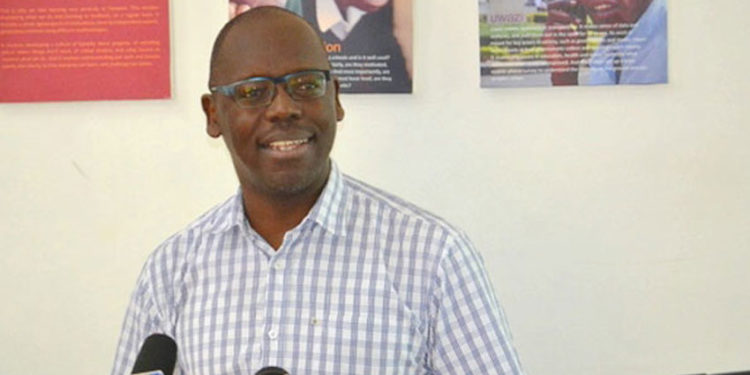Twaweza, a non governmental organisation that works on enabling children to learn, citizens to exercise agency and governments to be more open and responsive in Tanzania, Kenya and Uganda has issued useful tips that will help its staff and wider community to survive the COVID-19 pandemic.
According to Aidan Eyakuze, Twaweza’s Executive Director, they have already ensured that their staff are practicing social distancing by working from home and not participating in physical meetings.
“We are taking hygiene precautions with widely available sanitizer or soap and water for all staff. We are keeping people informed through sharing information from reliable sources. We are also halting or postponing programmatic activities that require gatherings of people and we are designing a set of activities to support the country’s response to COVID-19 by leveraging our unique skills and experience,” says Mr Eyakuze.
“As part of our efforts to keep our staff and the wider community safe, we are first and foremost monitoring the situation using information from reputable sources, and we are following all government directives and instructions. During this challenging time, we want to encourage you to consider how you are keeping yourselves and those around you safe. To support this, we have included a list of measures put in place by Twaweza under four major categories.”
Here are Twaweza’s useful survival tips against coronavirus;
Keeping things clean
Wash hands with running water and soap as often as possible but most especially after you come into contact with people or touch surfaces which may have been exposed to the virus. Wash for a minimum of 25 seconds being sure to scrub all the different parts of the hand.
Sanitiser can be used when access to running water is a challenge. Given the recent rise in prices, there are also options to make your own sanitizer. The critical ingredient for this is spirit / alcohol (higher than 60%).
Disinfect all surfaces which are subject to frequent touching, for example door handles and tables. These should be wiped down with a mixture of bleach and water mixed in a ratio of one part bleach to three parts water (1:3).
Keeping apart
Minimise meetings, use the phone for all communications. In addition there should be no gatherings including meetings, workshops, seminars etc
If it is essential for people to meet physically, minimize the number of attendees and ensure all participants wash their hands thoroughly on arrival and on departure. They must avoid physical contact with each other and with surfaces.
Keep physical distance between you and other people at all times, especially if others look unwell. Avoid physical contact, such as handshakes or pats, all together.
To minimize physical contacts and exposure to others, avoid all unnecessary movements and outings. If possible this includes offices closing and staff working from home. It also applies to social occasions which should not be attended.
Keeping our spirits up
It is easy to feel stressed and concerned during this period. Be sure to check in with each other – family, friends, colleagues, neighbours – how are they feeling, coping.
We can only defeat this virus if all of us play our part, and if we support each other in doing so. Provide advice, encouragement and a positive spirit.
Encourage positive behaviours by praising them and conversely by calling out negative behaviours. It is often best to do this with humour so you don’t have to worry about causing offense while ensuring that the message still reaches the intended audience.
Keeping informed
It is tempting to share everything you read that you think is interesting but we must be very careful. There is a lot of fake news out there, people are even using the pandemic to increase the type and frequency of scams they use to steal money. It is critical to share information from reputable sources only. The best sources are the World Health Organization, the US Centre for Disease Control and your national government.
Remember that we should not make people panic. It is also useful to share positive stories, people who recover, the experience of the virus or positive stories about health care providers.
Be an ambassador for the cause. The virus will be defeated when each person plays their part. Once you are aware and have changed your practices, encourage others around you to do the same.
Do you have a story in your community or an opinion to share with us: Email us at editorial@watchdoguganda.com












